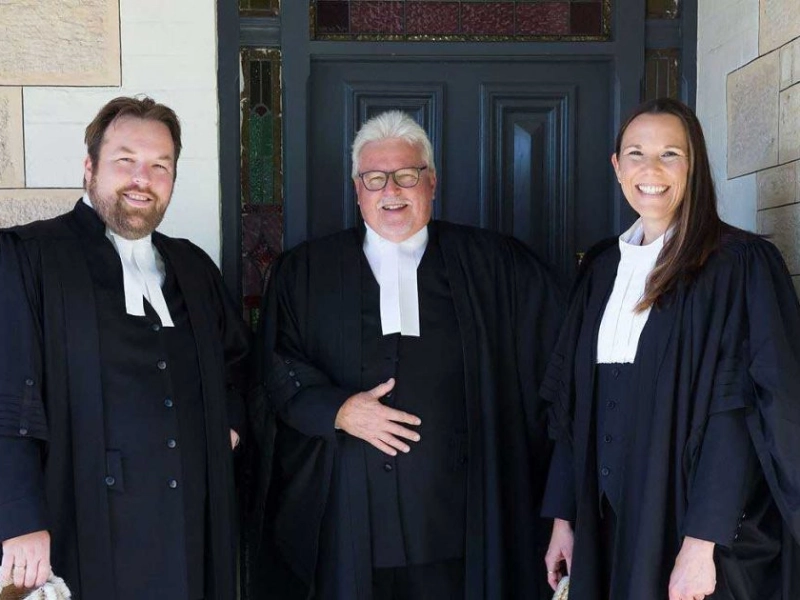The Value of Attorneys' Negotiation Skills
Effective negotiation abilities are essential for lawyers in many scenarios, such as settling lawsuits, finalizing mergers and acquisitions, or creating representation strategies. As such, training in negotiating is necessary for all legal practitioners.
Strong negotiating abilities enable lawyers to successfully negotiate complex legal situations and obtain advantageous results for their clients. This blog will examine the significance of skillful negotiation and essential abilities that any attorney should develop.
Strategic Contemplation

Strategic thinking is essential for good legal negotiators, whether they are resolving a malpractice claim, negotiating the terms of a merger agreement, or crafting an indemnification language in contracts. They consider the interests of their counterparties as well as their clients when analyzing circumstances, and they construct tactics by thinking through several options simultaneously as opposed to sequentially.
Attorneys ought to be ready to defend their positions and uphold their clients' interests at all times during a negotiation. They must be aware of the law, compile all pertinent facts, speak with their client, and create a plan. They must also possess self-assurance and assertiveness.
In order to think strategically, you must ask questions to have facts clarified or verified, ascertain someone's degree of interest, assess comprehension, gain participation, initiate conversations, improve the way your ideas are received, lessen tension, or establish rapport. Asking open-ended questions that invite the other person to react in their own terms is the greatest method to accomplish this.
Teamwork in Thought

Collaboration in thought is a critical element of successful negotiation. It can also assist a lawyer in avoiding more expensive options like litigation.
Effective bargaining gives lawyers the ability to tenaciously defend their clients in court and secure results that are consistent with their goals. It also enables them to avoid the dangers and expenses of litigation by obtaining out-of-court settlements that meet a client's material and emotional demands.
The aim of every lawyer negotiating is to feel as though they have "won," whether they are negotiating with a client or rival counsel. In order to do this, attorneys need to be able to promote a cooperative atmosphere, recognize feelings without allowing them to take center stage, and concentrate on objective standards and common goals. Additionally, they must be able to handle circumstances in which a power disparity or societal preconceptions may compromise their efficacy. Workshops with Claudia are thought-provoking, engaging, and useful. They address a variety of negotiation subjects, such as the fundamentals of interest-based negotiation and useful tiny negotiation tidbits.
The intelligence of emotions

Effective negotiating techniques can result in out-of-court settlements that satisfy the parties' financial and emotional requirements without incurring the time and expense of litigation in many civil matters, such as personal injury and contract disputes. When customers believe their lawyer is an adept negotiator, they have confidence that they will be fairly represented and that their matter will be settled quickly.
To effectively negotiate on behalf of their clients, attorneys need to be empathetic and understanding of their feelings and worries. In order to effectively interact with their counterparts and build lasting connections, they also need to be aware of and in control of their own emotions.
Ultimately, it is imperative that attorneys investigate all potential means of resolving conflicts, including non-litigation options. In this process, strategic thinking, cooperative problem-solving abilities, and emotional intelligence can all be very important. In order to settle matters in a way that best serves all parties and optimizes client satisfaction, attorneys should be open to considering these choices.
Paying Attention

Active listeners are the most skilled negotiators. They ask their counterpart whether they understand what they have said correctly and if there are any points that need clarification as they carefully paraphrase what they have said. This removes any possibility of misconceptions and guarantees that individuals fully comprehend the circumstances before reacting.
A client is more likely to feel involved and at ease disclosing private information to their lawyer when they feel heard. Over time, this enables them to develop value, loyalty, and trust—three things that need to be central to the mission statement of any law firm.
Although net promoter scores and satisfaction surveys can be useful in pinpointing important areas for development, they frequently don't provide the specifics of one-on-one conversations that can be achieved through active listening. The greatest way for law firms to build lasting connections with their clients is to develop and practice this talent. Additionally, it enables them to investigate every option for resolving disputes, including non-litigation alternatives.









